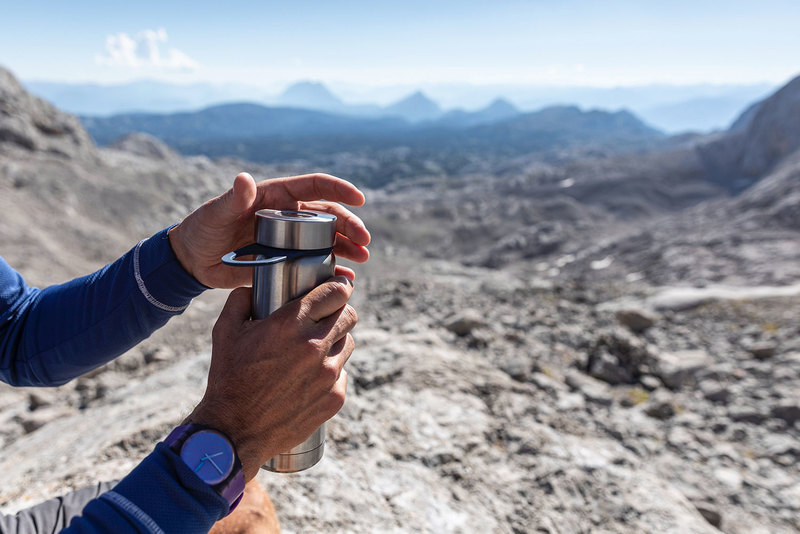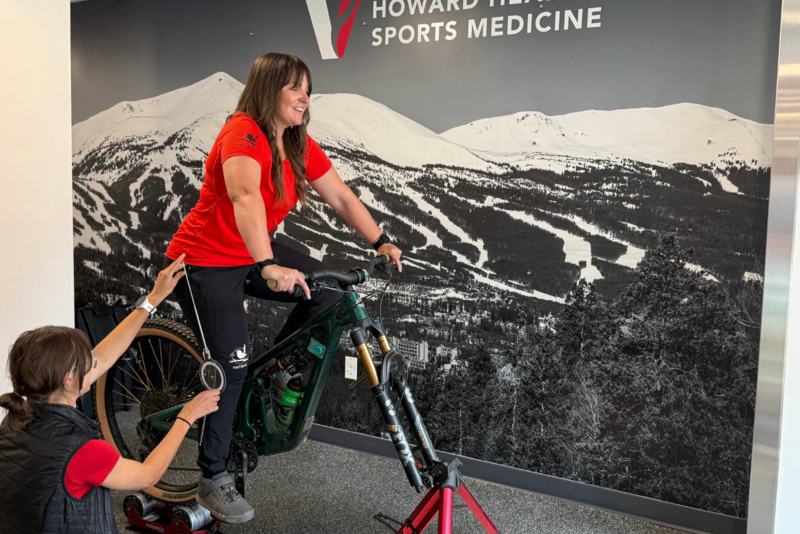News
Hydrate for Performance
December 18, 2023

“Hydration is key not only for injury prevention, but for overall wellbeing and performance each day,” explained Kevin Pillifant, MA, ATC, CSCS, the Community SafeHealth© specialist at Howard Head Sports Medicine. “Being properly hydrated before you begin your workday, activity or workout is key to staying sharp and energized, and it can prevent overuse injuries.”
What is hydration and how do you measure it?
Hydration is the replacement of body fluids lost through sweating, exhaling and eliminating waste. On average, the body loses and needs to replace about 2-3 quarts (64 ounces) of water daily. Those who live in high altitude know the importance of toting a large water bottle everywhere we go. In addition, we can hydrate with foods, many of which are largely composed of water, including fruits and vegetables.
“Athletes should increase their hydration through electrolytes, sports drinks, shakes and other fluid replacement drinks,” said Pillifant. “When participating in rigorous exercise, proper hydration should start the day/night before to really set you up for success for the next day. Sipping water throughout your workout or competition is also recommended to maintain hydration.”
The amount of liquid a person needs to stay hydrated depends on the environment, activity levels and the individual. Some professional athletes evaluate their hydration levels using a refractometer, which provides a real-time measurement of urine specific gravity. Blood tests can also show electrolyte levels, and urinalyses can be performed to determine the degrees of dehydration.
A more simple way to measure hydration is by the color of your urine—the darker the color, the more likely you’re dehydrated. “The best way to gauge hydration levels is by comparing thirst and urine color prior to your activity to post-activity,” explained Pillifant. “It’s important to rehydrate to pre-activity levels as soon as possible.”
Staying hydrated
“The common saying in athletics is ‘if you feel thirsty, then it’s too late,’” explained Pillifant. “Staying ahead of hydration is important when working out and competing.”
The Institute for Altitude Medicine recommends drinking extra water daily when at high altitudes. Drink even more water when participating in activities, especially when they make you sweat. Pillifant recommends the Nix Biosensor and the Gx Sweat Patch by Gatorade for athletes interested in evaluating sweat loss real-time. Both devices notify the athlete when hydration is needed during a workout. They also measure sweat content. Knowing if you are a salty sweater, for instance, can help you determine which type of fluid is needed to properly hydrate your body. Sometimes sports drinks that are high in sodium are needed. No matter your sweat content, however, sipping fluids throughout your workout works better than waiting until the end and gulping large amounts of fluid.
Hydration does it ALL!
“Hydration is the one tool that aids in injury prevention, readiness, performance and recovery,” explained Pillifant. “Whether it’s water, a supplement or an electrolyte powder, however, for it to work properly for your body in preparation or recovery, you must stay ahead of possible dehydration. Hydrate, hydrate, hydrate!”
More News
-
More

Howard Head physical therapist headed to Milano Cortina with U.S. Snowboard Cross Team
When Vail Health Howard Head Sports Medicine physical therapist Helen Bradley learned she was headed to the Winter...
-
More

Eagle physical therapist joins the U.S. Air Force’s 9G club
Eagle resident Devyn Kammert, a physical therapist with Howard Head Sports Medicine,
-
More

Optimize Your Ride: What Is a Medical Bike Fit and Why It Matters
Whether you're a weekend warrior, daily commuter or competitive cyclist, comfort and performance on your bike are...





